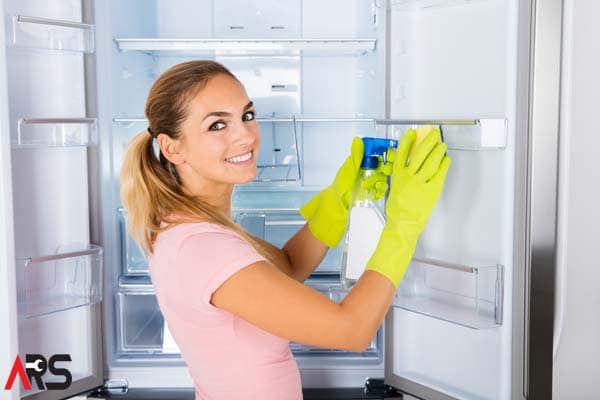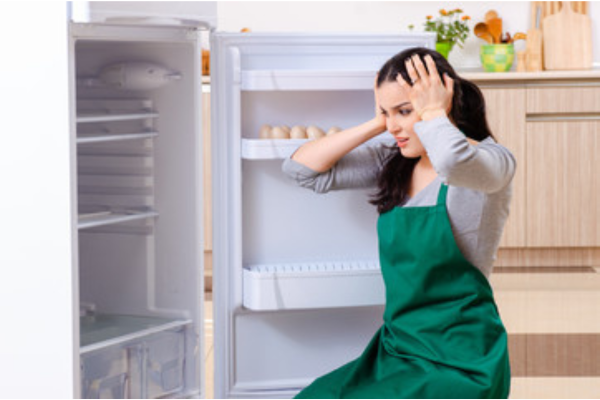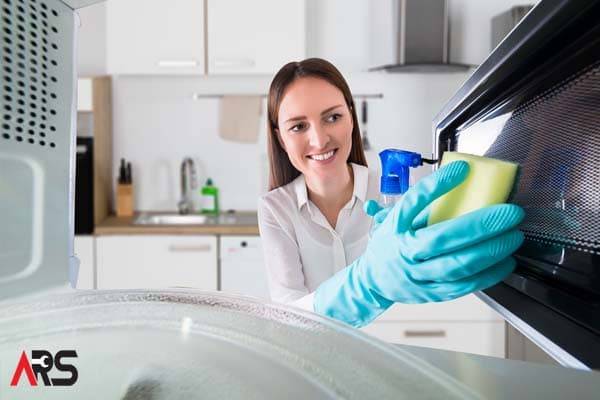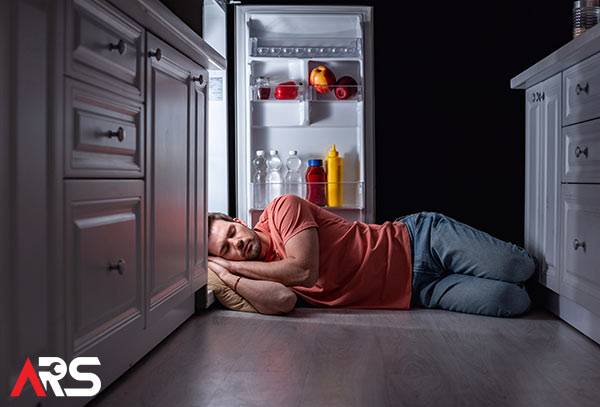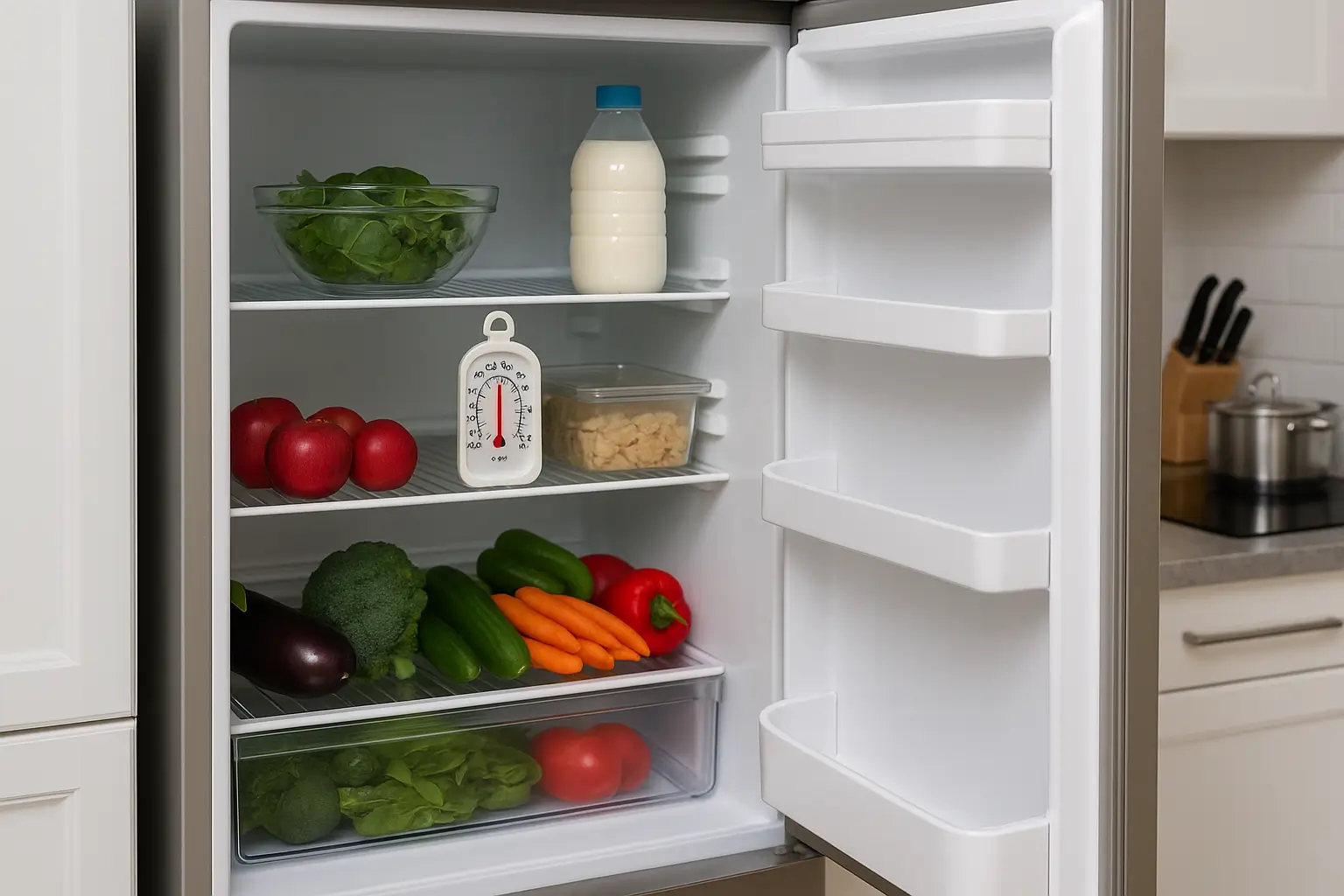
What Should Temperature be for Refrigerator: A Complete Guide
Setting your refrigerator to the right temperature may seem like a small detail, but it plays a huge role in food safety, energy use, and appliance performance. Whether you’re storing milk, leftovers, or fresh produce, maintaining the optimal fridge temperature keeps food fresh, prevents spoilage, and ensures your fridge doesn’t overwork itself. In this in-depth guide, we’ll cover everything you need to know, from the science of food preservation to troubleshooting a fridge that won’t stay cold.
What Is the Optimal Fridge Temperature?
The ideal refrigerator temperature is between 37°F and 40°F (3°C to 4°C). This range is cold enough to slow harmful bacterial growth without freezing fresh items. According to the FDA, refrigerators must be kept at or below 40°F (4°C) for safe food storage.
Why Proper Fridge Temperature Is Critical
Getting this right isn’t just about convenience, it’s about protecting your health, wallet, and appliance:
- Food safety: Bacteria like E. coli, salmonella, and listeria thrive above 40°F. At proper temps, bacterial growth slows dramatically (CDC food safety guidance).
- Energy efficiency: A fridge that’s too cold wastes electricity and increases your utility bills. Too warm, and the compressor cycles more often, also wasting energy.
- Food quality: Leafy greens wilt faster if stored too warm, while milk can sour days before its date if temps rise above 40°F. On the flip side, overly cold settings can freeze lettuce, eggs, or even yogurt.
How Temperature Affects Different Foods
Not all foods respond the same way to temperature. Here’s what happens when the fridge temp is off balance:
- Dairy: Milk and cheese spoil quickly if stored above 40°F. At optimal temps, milk stays fresh for about a week after opening.
- Meat & poultry: Raw meat must be kept cold to prevent bacterial growth. Ideally, store it on the lowest shelf where temps are coldest.
- Produce: Vegetables last longer when humidity is controlled. If temps dip below 37°F, delicate greens may freeze and turn mushy.
- Leftovers: Cooked meals should cool quickly and be refrigerated within two hours. At 37–40°F, leftovers remain safe for 3–4 days (Health Canada).
Freezer Temperature: Don’t Forget the Other Half
Your freezer should be set at 0°F (-18°C). This keeps food safe indefinitely, although quality may degrade after months. If your freezer rises above 0°F, ice cream gets soft and bacteria can slowly multiply in thawed areas.
How to Check Your Refrigerator Temperature
Relying on your fridge’s dial settings can be misleading. The best method:
- Place an appliance thermometer in the center of the middle shelf.
- Wait 24 hours and record the reading.
- If it’s not between 37–40°F, adjust the setting one notch at a time and re-check.
Tip: Avoid placing the thermometer in the door, temperatures there fluctuate every time the door opens.
Tips for Keeping Your Fridge at the Right Temp
- Don’t overcrowd: Blocked vents prevent cold air from circulating.
- Keep it clean: Dusty condenser coils force the compressor to work harder, impacting cooling performance.
- Check seals: A worn door gasket can leak cold air, causing temp fluctuations.
- Cool food before storing: Putting hot food directly inside raises the overall fridge temperature temporarily.
Smart Fridges and Digital Temperature Control
Many new refrigerators include digital panels or smart technology that allows precise temperature settings. Some even notify you if the temperature rises due to a power outage or door left open. While useful, these sensors aren’t always accurate, so a thermometer is still recommended.
Signs Your Fridge Isn’t Holding Temperature
If you notice the following, your fridge may need repair:
- Milk spoils before its expiration date.
- Produce wilts or freezes unexpectedly.
- The fridge feels warm even at the lowest setting.
- Excessive condensation or frost buildup inside.
- The compressor runs constantly or makes loud noises.
Common Causes of Temperature Problems
Several parts can fail and prevent your refrigerator from keeping the proper temperature:
- Faulty thermostat: Misreads temperature, leading to overcooling or undercooling.
- Blocked air vents: Cold air can’t circulate between the freezer and fridge compartments.
- Dirty coils: Dust buildup reduces cooling efficiency.
- Fan problems: A broken evaporator fan prevents cold air from reaching all areas.
When to Call for Professional Repair
Adjusting the settings should fix minor issues, but if your fridge consistently runs too warm or cold, it’s time to call in the experts. ARS provides fridge repair in Toronto, the GTA, and across Ontario. Our technicians can handle thermostat replacements, fan repairs, and more to restore the right fridge temperature.
Optimal Fridge Temperature FAQs
What temperature should a refrigerator be set at?
Between 37°F and 40°F (3–4°C) for the fridge, and 0°F (-18°C) for the freezer.
Is 45°F safe for a fridge?
No. At 45°F, bacteria grow rapidly, making food unsafe for storage.
Where should I put a thermometer in my fridge?
Place it on the middle shelf, away from the door and walls for the most accurate reading.
Why does my fridge freeze food?
If your thermostat is too low or airflow is restricted, items can freeze. A failing thermostat or control board can also be the cause.
How often should I check my fridge temperature?
At least monthly, or anytime you notice early spoilage or freezing.
Summary: The Right Temperature for Your Fridge
- Fridge: 37°F–40°F (3–4°C)
- Freezer: 0°F (-18°C)
- Use a thermometer, not just the built-in dial.
- Keep doors closed and avoid overfilling for steady cooling.
- If problems persist, it may be time for a repair.
Need Help With a Fridge That Won’t Stay Cold?
If your refrigerator isn’t holding the proper temperature despite adjustments, don’t wait until food spoils. Contact ARS Appliances Repair Service for professional refrigerator repair in Toronto, the GTA, and Ontario. Our experienced technicians diagnose issues quickly, replace faulty parts, and make sure your fridge keeps food safe and fresh. Call today or book online for fast, reliable service.
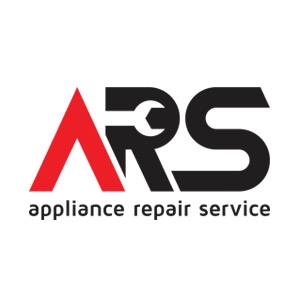
ARS Appliance Repair Service has been trusted across Toronto, Ottawa, and Southern Ontario for over a decade. Our licensed, manufacturer-authorized technicians specialize in repairing all major household and commercial appliances with genuine parts and warranty-backed service. From refrigerators and washers to ovens, dishwashers, and more, we restore appliances quickly, professionally, and correctly the first time, earning the confidence of homeowners and businesses throughout the region.
